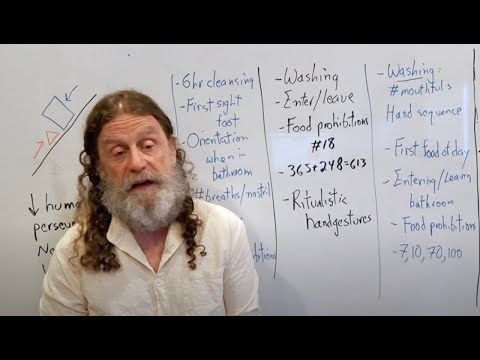I never cared much for the people who say that religious people are crazy or even the nicer words like “mental disorder”. It does nothing to increase understanding. Sapolsky does the hard work to sort out the neurology and the evolution of how our biology interacted with the environment and created culture.
ChatGPT summing up:
-
Universality of religion
-
Sapolsky points out that religious belief (or what he calls meta-magical thinking) is found in almost every human culture: “There has been no culture on earth without some version of belief in something beyond the immediately visible.” YouTube+2Open Culture+2
-
He asks not only “Why religion?” but also “Why atheism?” — i.e., given how widespread belief is, it’s interesting to consider what makes non-belief possible. Open Culture+1
-
-
Ritual, belief and neurobiology
-
He draws a parallel between certain neuro-psychological phenomena (e.g., obsessive-compulsive behavior, temporal-lobe traits, schizotypy) and religious ritual/role of shamans:
“The exact same behaviours which, in one context, destroy your life — e.g., OCD-like compulsions — in the right cultural context are the core of religious leadership or ritual.” CJ Fearnley
-
For example, rituals involving cleansing, food preparation, numerology, repeated actions reflect patterns similar to what we see in OCD-type behaviours. This suggests an evolutionary convergence between ritualized behaviour and neural predispositions. CJ Fearnley+1
-
-
Adaptive value of religion
-
Sapolsky argues that belief systems and rituals may have evolutionary advantages: they increase group cohesion, reduce stress, provide predictability and meaning in a hostile world. YouTube+1
-
He suggests religion acts somewhat like “nature’s antidepressant” — offering structure, community, reassurance, which can reduce anxiety and maybe increase lifespan (empirical studies show religiosity correlates with certain health benefits). YouTube+1
-
-
Free will, culture and biology
-
He challenges the idea of a “free will” untouched by biology: our beliefs, behaviors and cultural roles (including religious ones) are deeply shaped by genetics, brain structure, early environment, hormones, evolution. HineSight+1
-
Thus, religious belief is not just a cultural artefact but interwoven with our biology — our brain, our genes, our neurochemistry.
-
 Implications for human culture & religious belief
Implications for human culture & religious belief
-
Religion may be less about the ‘true content’ of belief and more about the function: providing an explanation, a social glue, a moral framework, a coping mechanism.
-
The ritualistic component of religion is central: the doing matters (e.g., repetition, community, rules) perhaps even more than the explicit doctrine.
-
Cultural variation in religion may rest more on how the ritual/ belief is embedded in society than on the metaphysical truth-claims.
-
From a policy or social-scientific perspective: understanding religion as biological + cultural rather than only spiritual helps explain why it is so persistent and universal.
-
Because our biology predisposes us to certain behaviours (pattern-seeking, ritual, community, meaning‐making), cultures that channel those predispositions efficiently may have been more stable/adaptive.
 Caveats & points of nuance
Caveats & points of nuance
-
Sapolsky isn’t saying all religion is pathology. He explicitly notes: He is not saying you’ve got to be crazy to be religious. CJ Fearnley
-
Correlation is not causation: neuro-traits that correlate with religiosity don’t necessarily cause belief, but may predispose certain roles (e.g., shamans) or make particular rituals appealing.
-
Biological explanation doesn’t entail dismissal of meaning or value in religion; it simply adds another level of explanation (how/why) besides the what and the why (metaphysical).
-
The framework is probabilistic and broad: humans are diverse, cultures are diverse, and many persons engage in religion for reasons that cross biological, cultural, social, psychological domains.
Good lecture.
Jesus invented the unknowable God 1:15:30 - interesting meme.
1:14:45 The Religious “Gene” issue.
Holy moly I didn’t know that was a thing beyond some newsprint space. This is why a more explicit, deeper understanding of our own body is such critical first base step, to cure those sorts of bizarre misreading of scientific studies.
Sapolsky does an excellent job of deconstruction, so don’t take that as a knock on anything he said. Just that it’s a sad state of affairs that it must be spelled out.
All this is easily understood from within an evolution respecting understanding, nature via nurture
by Matt Ridley (The Agile Gene)
Religion belongs to the “nurture” (external)component of our equation.
Body + Brain + Interaction (internal & external) = Mind/Consciousness
